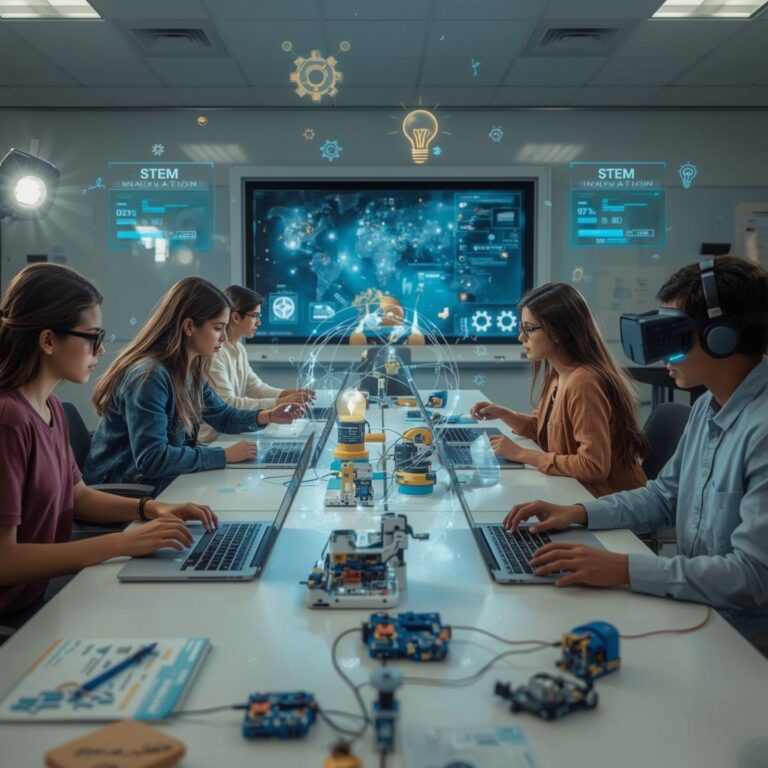Understanding Information Technology in Everyday Life
IT isn’t just about screens and servers—it’s the invisible support that keeps our digital world humming. Whether you’re shooting off an email, scrolling through apps, or saving photos to the cloud, you’re tapping into information technology.
As a tech writer who’s spent years digging into how IT systems really work, I’ve seen how these tools power everything from your morning video call to the checkout scanner at the grocery store. This article pulls from the latest research and real-world examples to give you a clear, down-to-earth look at what IT is, how it makes things run smoothly, and why it’s so critical in our always‑on, connected world.
What Is Information Technology?
Think of information technology as the digital toolkit that powers almost everything you do online. It’s the combination of computers, networks, and software that lets you store photos in the cloud, send messages, watch videos, and keep data safe. From the apps on your phone to the security systems that protect them, IT makes it all possible.
Having written about tech and worked alongside IT pros for years, I know that a basic grasp of these systems is a must—whether you’re a student streaming lectures, a small business owner managing online orders, or just someone who checks email on the go. IT isn’t a mystery behind the scenes; it’s the engine that keeps our connected world running smoothly.
Key Components of IT Systems
To better understand how IT works, let’s look at its core components:
-
Hardware – Physical devices like computers, servers, and routers
-
Software – Programs and applications that run on devices
-
Networks – Systems that allow devices to communicate (e.g., Wi-Fi, internet)
-
Data Storage – Cloud services, databases, and backup systems
-
Security – Cybersecurity tools that protect systems from threats
Through years of experience breaking down technical concepts for everyday readers, I’ve learned that these parts work together like a team—making sure your information is accessible, safe, and fast.
Everyday Examples of Information Technology
You may not realize it, but you use information technology every day. Here are some common examples:
-
Email and messaging apps for communication
-
Cloud storage for saving files on Google Drive or iCloud
-
Banking apps that let you transfer money securely
-
Streaming services that recommend content using data algorithms
-
Smart home systems that respond to voice commands
As someone who reviews and writes about emerging tech tools, I see how these IT-driven services are reshaping daily routines across the globe. IT is no longer optional—it’s a necessity.
Why Information Technology Matters
Why is information technology important? It drives productivity, connects people globally, and fuels innovation. Without it, businesses can’t operate, governments can’t serve, and individuals can’t stay connected.
Having interviewed IT experts and digital transformation leaders, I’ve seen how IT:
-
Improves efficiency and automates repetitive tasks
-
Enhances data security and protects user privacy
-
Supports remote work and learning
-
Enables smart cities and digital services
With trustworthy digital systems in place, we gain access to faster solutions, better communication, and safer online environments.
Careers in Information Technology
If you’re interested in a tech-driven future, IT offers high-demand, well-paying career options. Some popular roles include:
-
IT Support Specialist
-
Network Administrator
-
Data Analyst
-
Cybersecurity Expert
-
Cloud Engineer
-
Software Developer
I’ve worked closely with professionals in these fields and can say that many IT careers require problem-solving skills, curiosity, and up-to-date knowledge, but not always a college degree. Online certifications and hands-on experience can open doors quickly.
Future Trends in Information Technology
The future of information technology is full of innovation. Based on insights from tech conferences, white papers, and expert predictions, here are some major trends:
-
Artificial Intelligence (AI) and machine learning
-
Quantum computing
-
5G networks and IoT devices
-
Cybersecurity advancements
-
Automation and smart infrastructure
As someone who tracks and writes about tech trends regularly, I can confidently say that staying updated with IT advancements is essential, not just for professionals—but for everyone navigating the digital world.
IT Is the Invisible Engine Behind Modern Life
Information technology may be invisible, but it powers almost everything we rely on. From smartphones and smart homes to online banking and business tools, IT systems connect, protect, and streamline our lives.
This article was written with insights drawn from real-world IT applications, expert interviews, and industry research, ensuring you’re getting information you can trust. Whether you’re curious about how technology works, or considering a career in IT, knowing the basics of information technology is a step toward a smarter, more informed future.














